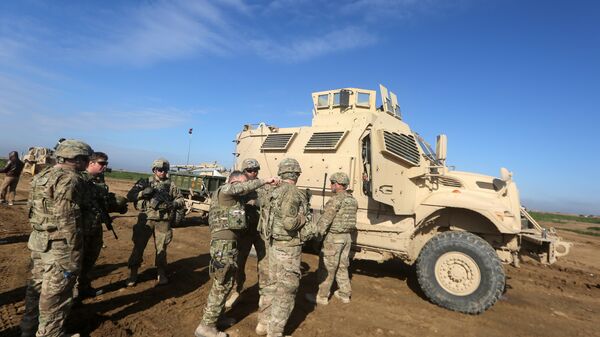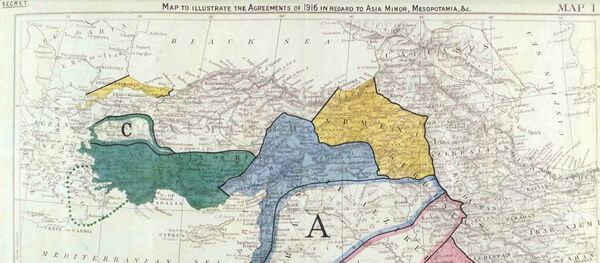Speaking to Russia's Izvestia newspaper, Suleiman suggested that the shift in strategy was demonstrated most recently by the Syrian Democratic Forces' participation in an offensive against the Daesh-controlled city of Manbij in northern Syria. The capture of the city and the surrounding area would completely block off the terrorists' supply route from Turkey, the officer indicated.
At the same time, Suleiman said, "the US position on Daesh has always been two-sided. They say one thing and do another. And in this case it's not about cutting off the terrorists' connection with Turkey, but the expansion of the zone of influence of the Kurds, and then using this to their advantage."
"In essence," the officer warned, "Syria in some sense is seeing a repeat of the situation in which Germany was after the Second World War, when the country was divided into zones of influence. We know, of course, that Russia adheres to the UN Charter and the concept of respect for the sovereignty of other countries. But US policy has, on the contrary, throughout history, testified to constant violations of international law."
"We do not want this, and we do not believe that Russia is playing such games," the officer noted. "Nevertheless, we cannot help but feel concern about how the situation will develop," he added, pointing to John Kerry's April proposal to divide Syria along zones of control.
"We've even proposed drawing a line, an absolute line, and saying, 'You don't go over there, we don't go over here, and anything in between is fair game'," Kerry said, speaking to The New York Times editorial board in late April.
In response, Russian Foreign Minister Sergei Lavrov suggested that such an approach is "simplistic," adding that "the principal goal is to fight against terrorism" in Syria, not to divide the country up.



